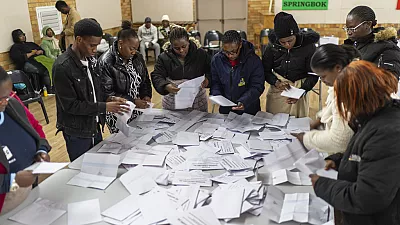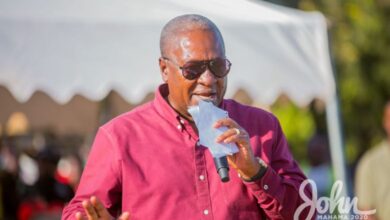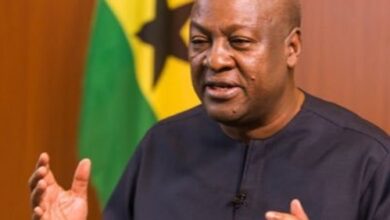
All eyes are set on South Africa’s Independent Electoral Commission.
Partial results in the national assembly election put the long-ruling African National Congress party ahead Thursday (May. 30).
However, with around 34% of votes counted by Thursday 6 PM UTC, it was still only an early picture after Wednesday’s vote.
This is the first time the ruling ANC has faced the real possibility of losing power since the country’s first democratic elections in 1994.
Speaking from Johannesburg on May 30, the party’s First Deputy Secretary General reckoned that partial results put the worst predictions to shame.
“Everybody was looking at the ANC with 36% to 40%, and we’re quite certain that we will surpass that,” Nomvula Mokonyane said.
The Democratic Alliance is in the lead in Western Cape.
Newly founded MK party which is backed by former president Jacob Zuma is in the lead in Kwazulu-Natal.
Rival parties critiqued what they call the arrogance of the ANC, with Sihle Ngubane, the Secretary General of uMkhonto weSizwe party saying “economically, they failed.”
Political analyst Joleen Steyn-kotze said it is still too early to tell if ANC’s votes will fall under the 50% mark, but regardless of the results, political parties in South Africa may have to change the way they operate politically.
“We do need to move towards a collaborative relationship between political parties who ultimately may be faced with the reality where they have to work together,” she said.
If no party secures the majority of votes, political parties will be forced to form coalitions in order to decide on who will be president under South Africa’s parliamentary system.
Partial results in the provincial legislature gives the ANC a comfortable majority.
Nearly 28 million people out of South Africa’s population of 62 million were registered to take part in the election.
The final result and seat allocation for the national assembly and provincial legislatures elections are announced by the Electoral commission within 7days of the election.




